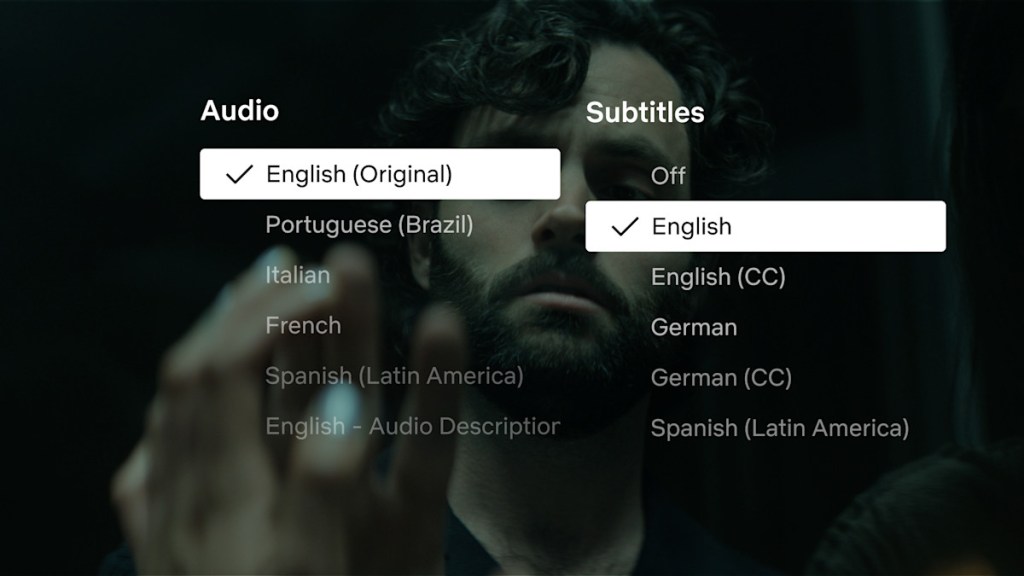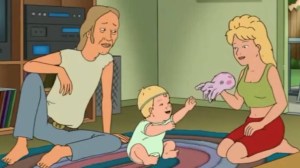[Ominous synth music playing.] [Tentacles squelching wetly]. [Wet writhing.] [Fissure writhing wetly.] [Trilling.] [Wet squelching.] [Squelching wetly.] If you’ve ever watched Stranger Things with subtitles on, you may have noticed some variation of the above closed captions. While some of those intentionally extra-descriptive, gross-out captions went viral during Stranger Things season 4 in 2022 — everything from “sibilant trilling” to “dissonant gibbering,” “eldritch thrumming,” and “tentacles undulating moistly” — Netflix users will have the option to turn off such audio cues for the upcoming fifth and final season of Stranger Things.
Videos by ComicBook.com
Starting with YOU season 5 on April 24, Netflix rolled out a new option: original language subtitles that show only the spoken dialogue, without the descriptive audio cues. That means no more [phone buzzing] or [dramatic music swells], or in the case of Stranger Things, descriptions like [food plops wetly], [gate pulsates wetly], [unearthly rustling] or [tense music intensifies].

RELATED: What’s New on Netflix in May 2025
Netflix subscribers can now select the language of their choice and then two options: “English,” for example, shows only spoken dialogue, while “English (CC)” includes both dialogue and audio cues like [door slams]. According to Netflix, these subtitle options will be available on all new Netflix originals in every language offered in addition to SDH/CC (Subtitles for the Deaf and Hard of Hearing/Closed Captions) going forward. (See the image below.)
The new subtitle option will first appear on new titles coming to Netflix, which so far includes You (Season 5), A Dog’s Way Home, Jewel Thief – the Heist Begins, Chef’s Table: Legends, Exterritorial, and Tom Hardy movie Havoc.

Upcoming titles releasing this year that will automatically have the new feature include Wednesday season 2, Stranger Things season 5, Ginny & Georgia season 3, Squid Game season 3, and original movies Troll 2, Fear Street: Prom Queen, Happy Gilmore 2, Wake Up Dead Man: A Knives Out Mystery, and more.
“Finally Netflix subtitles without all the [loud crash] [sad music] junk… just pure dialogue,” one Netflix user receptive to the change wrote on social media. Another Netflix subscriber wrote of the dialogue-only subtitle option, “My kids insist watching TV with subtitles. So this new feature from Netflix, subtitles without the ‘hear impaired’ direction is welcome [no more inspiring music].”
“The auditory component is so crucial to the effect of [Stranger Things 4]. [Series co-creators] the Duffers know exactly what they’re playing with,” English SDH subtitler Jeff T. told Netflix’s Tudum in 2022. “They know the genre they’re in, they know their historical antecedents, they know the history of horror movies and creature features. And in all those movies, sound design is so crucial.”
“We wanted to try to accurately reflect that in our subtitles for the Deaf and hard of hearing because this is their primary avenue for access to those sensory inputs,” he explained of the audio cues. “There’s just something ‘classic monster movie horror’ about something slimy and wet. They gave us a lot of fun things to play with here.”
Added English SDH quality checker Karli Webster, “Just to give you a bit of an insight into what goes into choosing descriptors, obviously we’re trying to encompass the genre, the feel of the moment. But when we’re saying something that’s specific to the Deaf and hard of hearing audience, it’s never just for one part of that audience, because they don’t split subtitles just for people who [have been] Deaf since birth.”
“There are people who’ve lost their hearing as their life has progressed or people with partial hearing loss. These subtitles have to be there for all of those levels of hearing loss,” Webster continued. “So we really tried to strike a balance between descriptors that will describe something well for someone who’s never heard or that will recall an emotion or a feeling for the hard of hearing audience that they did feel perhaps when they were able to hear music, as well as other sound effects.”









